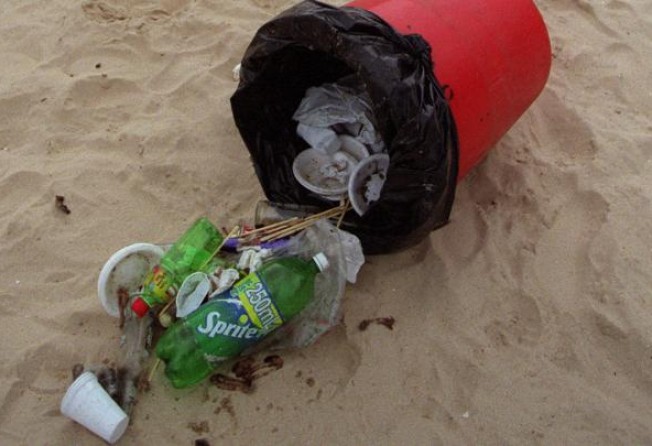Slovenly habits have no place in Hong Kong, especially our own
Peter Kammerer says before we sneer at the slovenly habits of others, we should first reflect on the environmental mess we’re making

So, some of us take exception to mainland visitors and their habits. A photo doing the rounds last week of a mainland child defecating on the floor of Kaohsiung airport in Taiwan said it all for those who think in terms of "them" and "us". It fitted perfectly the engrained image that those from north of the border don't know much about hygiene and cleanliness. Well, don't be so quick to point fingers: Wander the streets before cleaning crews come along or take a close look at the New Territories to see we're not all that prim and proper ourselves.
For starters, think back to pre-Sars days. Just a decade ago, Hong Kong people were also spitting on footpaths and the only thing that broke the habit was a mystery killer disease and big fines. Smoking in lifts was common, as was throwing paper wrappers, empty drink cans and plastic bags onto streets. One of my lasting memories from that time is of a pretty young woman standing next to me in a crowded bus, loudly clearing her throat and with plainly practised precision, firing a phlegmy stream through a window.
The severe acute respiratory syndrome outbreak made us more health-conscious and the threat of a HK$1,500 penalty made us less likely to litter. Education and restrictions have cured many of us of smoking. There are plenty of well-maintained public toilets, making it socially unacceptable for parents to allow toddlers to relieve themselves on the street. We've come a long way in a short time.
But, for all the changes, there's still plenty of room for improvement. Take a walk after shops, restaurants and bars have closed to see that not everyone goes out of their way to put garbage in bins. Beaches are a mess after summer crowds head home. There's worse in the northern New Territories - illegally dumped vehicle shells, construction waste, discarded tyres and mounds of garbage speak volumes.
If we really cared, our roadside air wouldn't be so choked with fine black powder from diesel fumes. Nor would our landfills be at near-capacity; instead of the piecemeal approach to garbage disposal we practise, there would be a per-bag collection fee to discourage consumption and incineration, and promote recycling. The Environmental Protection Department has all manner of statistics to show progress, but when compared to other wealthy, developed societies, ours is doing poorly. Most food waste ends up in landfills, just 5 per cent of glass is recycled and a friend recently told me a story about plastic that has made me wonder how dedicated to sustainability our government is. A determined recycler, she found that the plastic bottles she was putting into recycling bins were ending up in the general garbage because, as the sanitation worker told her: "There's no money to be made from recycling plastic in Hong Kong."
We could learn so much from the Taiwanese. The streets of Taipei were drowning in trash in the 1990s, but are clean now thanks to a user-pays trash system and recycling. Citizens sort their own garbage and wait at designated times to put the bags into trucks playing classical music. That has built community togetherness, pride and responsibility. Mainland visitors would learn so much more from that than being subjected to our complaints and sneers.
Peter Kammerer is a senior writer at the Post